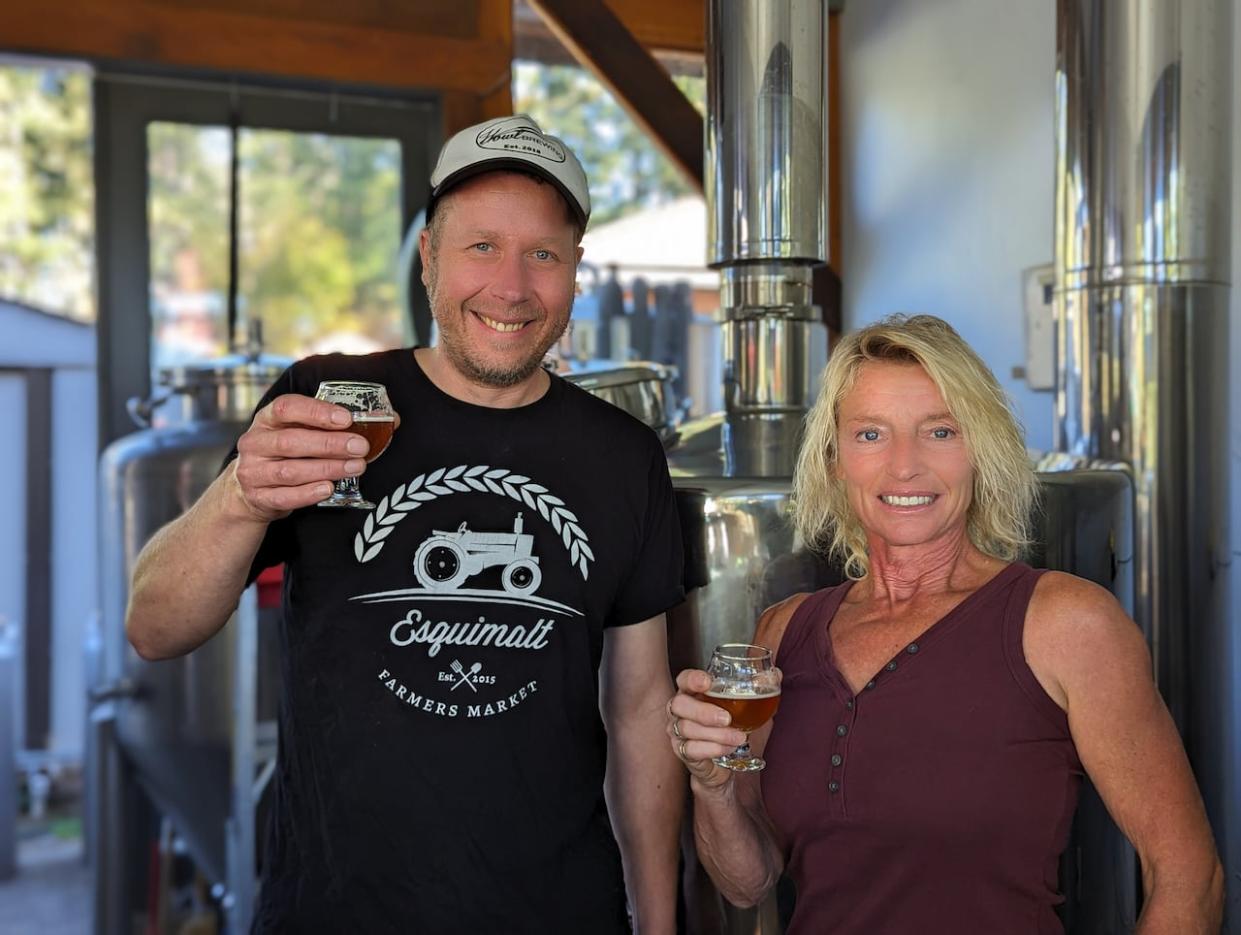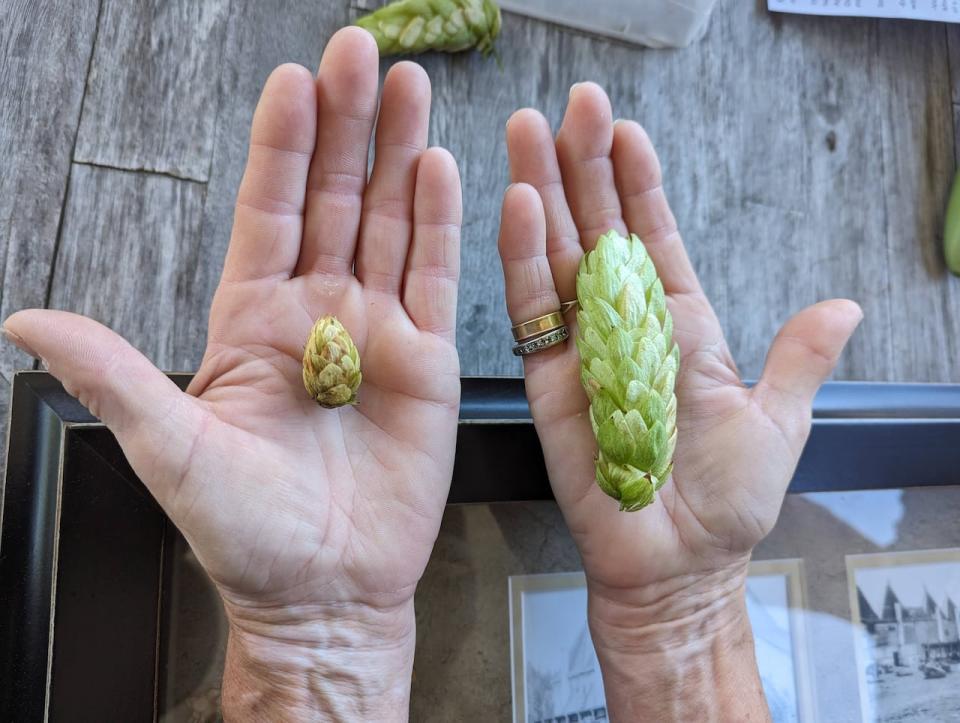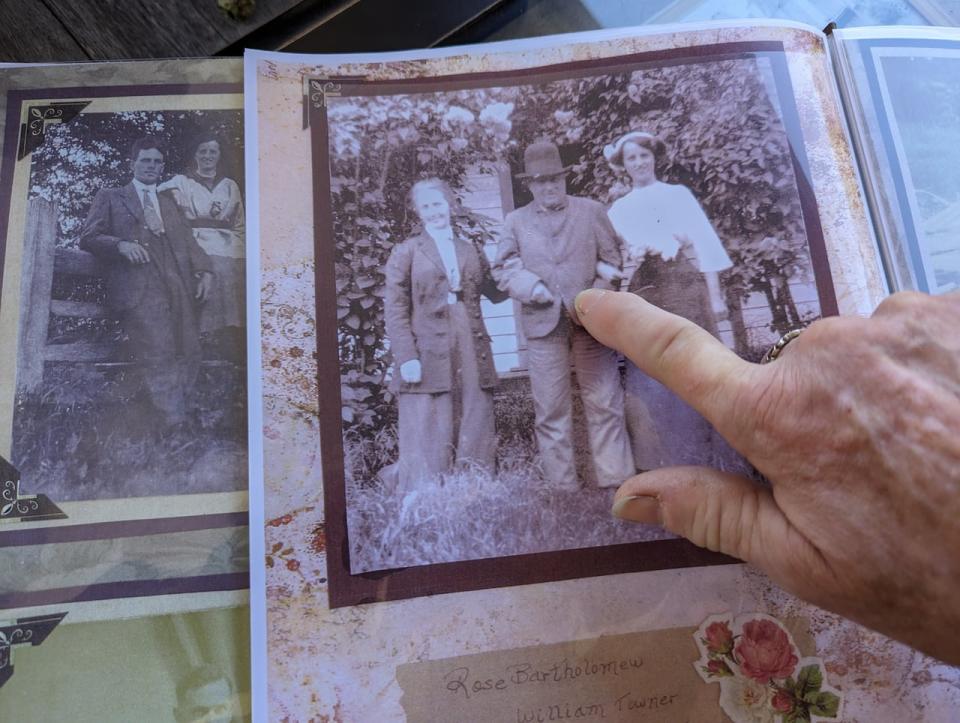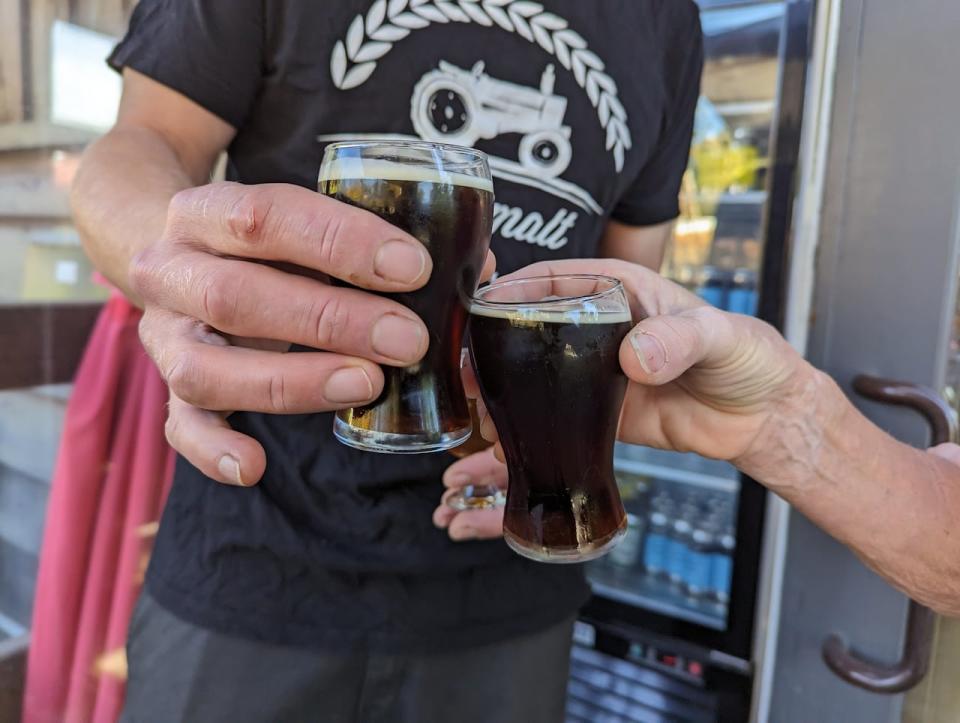Vancouver Island brewer hops back in time to make beer with historical crop

A craft brewer in North Saanich, B.C., is brewing beer using hops that were originally grown back in the 1870s.
Daniel van Netten, the owner of Howl Brewing, said he has made a couple of batches of beer using the freshly picked bright green cones, which are much bigger than commercial varieties used today.
The North Saanich craft brewer got hold of the historical hops from the owner of the Hop Farm, a Saanich property steeped in B.C. brewing history that goes back to the late 19th century.
"A friend of mine and a regular here brought me these huge hops, which he said he got from the owner of the Hop Farm, who also gives him horse riding lessons," he said.

The 'historic' hops grown by Lavonne Parker (right) are much bigger than regular hops that Daniel van Netten uses while brewing beer at Howls Brewing. (Rohit Joseph)
So far, he has brewed two classic beers, an English pale ale and a brown ale, using the hops. Van Netten presumes they are Fuggle and Golding variety of hops, which are renowned for lending bitterness and earthy aroma to British ales.
On their own, the big hops smell like garlic bread but when brewed, van Netten says they make the beer slightly "citrusy" in taste with a more "piney" aroma.
Hops have been used in brewing for centuries to give beer its bitterness, as well as distinctive aromas and flavours that differ according to the variety. They also act as a preservative.
"This certainly opens up a window to the past and gives people an idea of how beer would have tasted some hundred years ago," he said.

Lavonne Parker shows a photo of William Towner, the original hop farmer and owner of the property, standing next to his nieces. (Rohit Joseph/ CBC)
Fascinated by their flavour and legacy, the Howl Brewing owner wanted to get more of those hops so he decided to reach out to the hop farm owner herself, Lavonne Parker.
Horse trainer and riding coach Parker bought the property in 2006 and has been using it for horse riding and training and a little bit of non-commercial hop farming. She said the farm belonged to William Towner, who was known as a pioneer hop grower in B.C.
Towner was from Kent in England — a prominent hop-growing region — and arrived in B.C. in the 1860s bringing hop plants with him, Parker said.
"He planted them on this property, where they flourished in the fertile soil," she added.

Daniel van Netten has brewed a classic English pale ale and a brown ale using the big hops which were once grown by William Towner back in the 19th century. (Rohit Joseph/ CBC)
According to Victoria City Archives, Towner was a primary supplier of hops for breweries in Vancouver Island including Victoria's first commercial brewery established in 1858, the Victoria Brewery.
During that time, local brewers had to import hops from the United States since no local crop was available.
High importation costs eventually led local brewers to offer prizes for farmers to grow hops. Towner was one of many to take up the challenge and by the late 1870s, after cultivating several acres on the Saanich Peninsula, he had become Victory Brewery's sole hop supplier.
However, the once thriving commercial hop farming in Vancouver Island couldn't weather the massive infestation of hop louse back in the 1890s, which eventually eliminated the industry, according to the Chilliwack Museum and Archives.
Today, van Netten sources his hops from small local growers and commercial farmers in the lower mainland.
"It's nice that the community here like to help around and several people come here and bring hops they have grown from time to time," he said.
Now, he has found yet another community member to help him with his hop supply.
Parker says she has been propagating hop plants grown by Towner since 2006.
"I have been rerooting the plants to propagate them and growing hops since 2006," she said. "It is all for decorative purposes."
Parker said while her hops aren't for commercial use, she has struck a "lucrative" partnership with van Netten: "I am getting free beer," she said.
"Hops for beer," echoed van Netten.
The Howl Brewery proprietor said he is now looking forward to making beer with Parker's hops every year.
"I added four times as much hops in the last 10 minutes of the boil so they're mild on the bitterness and heavy on the aroma," van Netten said.
He says he will be experimenting with the historical hops and coming up with more beverages for his customers in the next few months.


